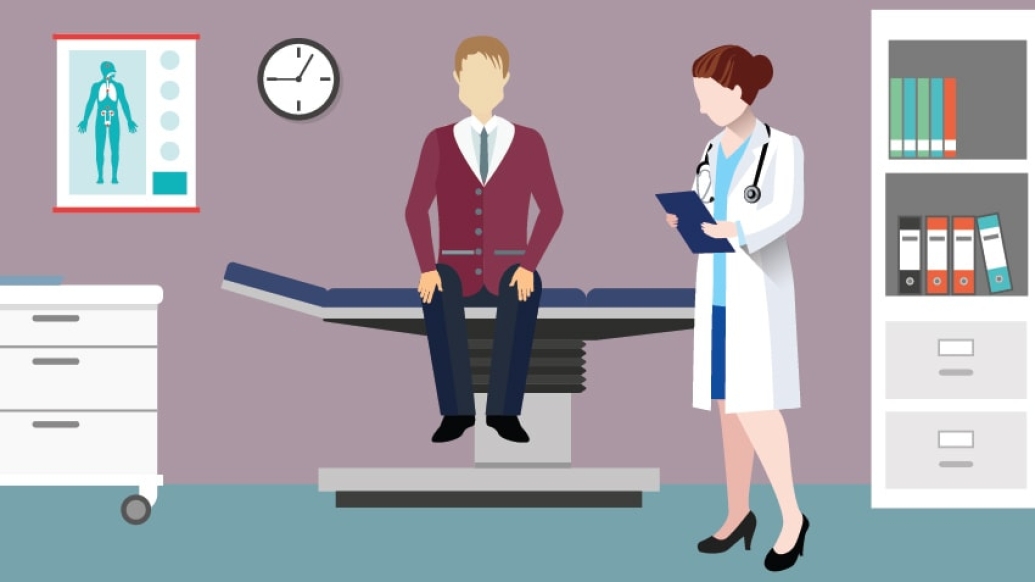Research has shown an unexplained increase in cases of colorectal cancer in younger patients. A Michigan Medicine expert explains what that means and who should receive preventive screenings
1:00 PM
Author |

This article was updated August 31, 2020.
Colon cancer is the third most commonly diagnosed cancer in America. The good news? It's also the most preventable, and overall diagnosis rates of colon cancer have been on the decline since 1990.
MORE FROM MICHIGAN: Sign up for our weekly newsletter
The bad news is that the incidence of colon cancer among people 45 and younger has been increasing by about 1.5 percent annually during the same time period. Also concerning is that these younger patients were more likely to be diagnosed at advanced stages.
Elena Stoffel, M.D., assistant professor of internal medicine at the University of Michigan Medical School and director of the Cancer Genetics Clinic at the Rogel Cancer Center, has spent her career working in colon cancer prevention and research.
She spoke recently about who might be most at risk at a younger age and how doctors can prevent or catch colon cancer earlier.
Routine colon cancer screening isn't usually recommended before age 45. How are you finding these younger patients?
Stoffel: Most of them are being diagnosed when they present with symptoms like rectal bleeding, abdominal pain, weight loss and anemia. We typically don't think of colon cancer in young people because we're so used to seeing it in older people.
I teach my GI fellows that when we see a young person in the clinic who is complaining of rectal bleeding, we can't just dismiss it as hemorrhoids. You have to think about what else this could be. They need to always think about the possibility that this could be a colon cancer in a young person. We know we're seeing it more often; we're just not thinking about it.
I think that's why a lot of the diagnoses in young people are made at later stages — we don't investigate these symptoms as quickly as we would in an older person. You can't just assume that young people don't get colorectal cancer.
How do you identify which populations have a greater risk of colon cancer?
Stoffel: We know that family history of colon cancer has a major impact on your colon cancer risk. We typically say that the average individual's lifetime risk for developing colon cancer is about 5 percent. If you have one first-degree relative with colon cancer, your risk is roughly double that. But if you have multiple relatives with colon cancer, and especially if those cancers were diagnosed at younger ages, then your risk is much higher.
There are certain genetic factors that increase your risk for colon cancer. The most common hereditary colon cancer syndrome is a condition called Lynch syndrome, and we know that approximately 3 percent of all colon cancers are attributable to Lynch syndrome.
But when you look at young people with colon cancer, we actually have found that this group is much more likely to have a genetic link. Roughly 1 in every 5 people under the age of 45 with colon cancer has a genetic predisposition to it.
Does this cancer derived from Lynch syndrome behave differently?
Stoffel: Yes. Your typical colon cancer takes 10 to 15 years to develop, so if the average person gets colonoscopies every five to 10 years, starting at the age of 45, we can remove polyps before they can grow into cancers.
SEE ALSO: Surgery vs. Polypectomy: Weighing the Risks and Benefits
But some cancers with a different molecular subtype can grow very quickly, developing from polyps in under three years, and Lynch syndrome cancers can do that. For this reason, we recommend colonoscopies annually for people with this genetic condition.
What percentage of the population has Lynch syndrome?
Stoffel: Recent data suggest these Lynch syndrome mutations are more common in the general population than we thought they were, such that 1 out of every 300 people has Lynch syndrome and doesn't know it. Not everybody with one of these mutations will get cancer, but these mutations increase your risk of developing cancer by orders of magnitude.
Should doctors start testing for colon cancer in younger patients, regardless of their risk?
Stoffel: I think it is important to emphasize that colon cancer is one of the most preventable cancers. The vast majority of colon cancers arise from polyps, and if we find these polyps and remove them early, we can prevent them from growing into cancers. In general, colon polyps are less common in young people.
Current guidelines recommend that individuals at average risk for colon cancer begin screening at age 45. There are several different types of colon cancer screening tests.
Colonoscopies are the gold standard test but are invasive and carry some risk for complications. For people who are at average risk for colon cancer, there are other ways to screen for colon cancer that are less invasive than colonoscopy. Stool DNA and fecal occult blood testing work well for finding cancers — but are not as good at preventing cancers.
Here at U-M, we're working to develop tests that find polyps that are less invasive than colonoscopies, which would enable us to get more people screened for colorectal cancer.
The question, though, is whether we should start screening at ages under 45. I think the important message is that people should have a conversation with their doctor about their family history of cancer to examine their risk for colorectal cancer and determine the best age to start screening.
For questions about colorectal cancer screening or genetic testing for Lynch syndrome, call the Cancer AnswerLine at 800-865-1125.

Explore a variety of healthcare news & stories by visiting the Health Lab home page for more articles.

Department of Communication at Michigan Medicine
Want top health & research news weekly? Sign up for Health Lab’s newsletters today!





